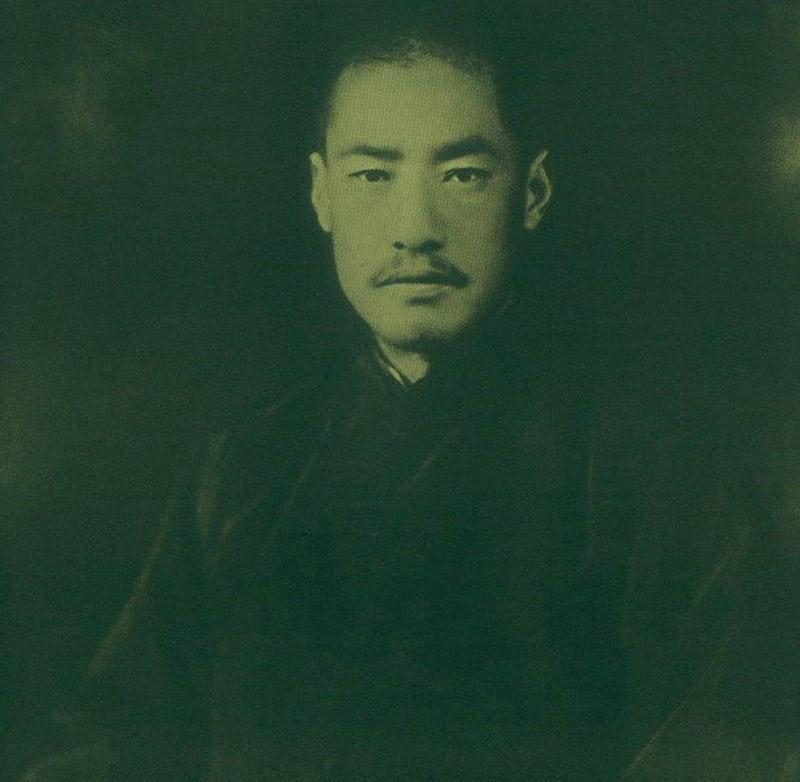During the Republic of China period, there were four warlords who ruled the northwest, and they ruled the northwest for decades, which was also known as the "Four Horses of the Northwest". The "four horses in the northwest" are Ma Bufang, Ma Buqing, Ma Hongkui and Ma Hongbin. Among them, Ma Bufang and Ma Buqing are brothers, and Ma Hongkui and Ma Hongbin are cousins. Among the "Four Horses in the Northwest", Ma Bufang, the "King of Qinghai", was the strongest, and the weakest was Ma Hongbin. Today we will talk about the end of Ma Hongbin, the weakest of the "Four Horses in the Northwest", in his later years.

Ma Hongbin was born in 1884 in Linxia, Gansu Province, into a family of eunuchs. His father was the famous pipe belt Ma Fulu at the end of the Qing Dynasty. Ma Fulu was born as a martial artist, Ma Hongbin followed his father in his early years, and after his father's death, he followed his uncle Ma Fuxiang. In 1916, the 32-year-old Ma Hongbin was awarded the title of major general by the Beiyang government, and four years later he was awarded the rank of lieutenant general, so it can be said that Ma Hongbin was a young general who relied on Zu Yin's fortunes.
During the Republic of China period, warlords were fighting, and Ma Bufang, Ma Buqing, Ma Hongkui and Ma Hongbin, who were born in Linxia, Gansu, gradually ruled the northwest, because they were all surnamed Ma, so they were called "The Four Horses of the Northwest". The "Four Horses of the Northwest" have been in the Northwest region for decades and have had a profound impact on the political situation in the Northwest during the Republic of China period.
Among the "Four Horses in the Northwest", although Ma Hongbin is the oldest, his strength is the weakest. During his occupation of the northwest, Ma Hongbin successively served as chairman of Gansu Province, deputy commander of the Ningxia Corps, and commander of the 81st Army of the National Revolutionary Army. Compared with Ma Bufang, the "King of Qinghai" and Ma Hongkui, the "King of Ningxia", Ma Hongbin was not a little worse than them, and even Ma Buqing, who later lost his power, was also appointed deputy commander-in-chief of the 40 Group Army, stronger than Ma Hongbin.
At the end of the Liberation War, three other slightly stronger Ma Buqing, Ma Bufang, Ma Hongkui, and others in the "Four Horses of the Northwest" fled the mainland and fled to Taiwan with Chiang Kai-shek. Only Ma Hongbin, the weakest of the strongest, took the initiative to stay on the mainland and chose a peaceful uprising. So, what happened to Ma Hongbin in his later years, who chose a peaceful uprising?
In 1949, with the defeat and retreat of the Kuomintang on the mainland, the "Northwest Four Horses" also ushered in a different ending, especially after the liberation of Lanzhou in August 1949, the People's Liberation Army moved to Ningxia, and the "Northwest Four Horses" were terrified. At this time, Ma Hongbin's identity was the deputy commander of the Ningxia Corps, and seeing that the Kuomintang soldiers were defeated like mountains, Ma Hongbin also had the idea of a peaceful uprising in his heart.
Ma Hongbin first sent his son, Ma Xiaojing, who was the commander of the 81st Army, to talk with the Platon Army; at that time, Ma Hongkui, the chairman of Ningxia among the "Four Horses in the Northwest," was still in Yinchuan and still had a certain amount of force in his hands, and Ma Hongbin himself did not want to give up completely, so he only gave the PLA an ambiguous answer at the first meeting.
In September 1949, when the People's Liberation Army soldiers approached Yinchuan City, Ma Hongbin became anxious and ran to Suiyuan to talk with Fu Zuoyi and Deng Baoshan, and made up his mind to peacefully revolt with Dong Qiwu, chairman of Suiyuan. On September 19, Ma Hongbin's son Ma Xiaojing declared a peaceful uprising, and Ma Hongbin and Ma Huanjing reorganized the 81st Army into the Independent Second Army of the Northwest Field Army.
After the founding of New China, Ma Hongbin served as vice chairman of the Ningxia People's Government, and soon after he served as vice chairman of the Northwest Military and Political Committee and a member of the National Defense Commission. In 1954, Ma Hongbin served as a deputy to the First National People's Congress and a member of the Nationalities Committee, and as a member of the Nationalities Committee, he did a lot of work to promote national unity.
In his later years, Ma Hongbin lived in Lanzhou and successively served as vice governor of Gansu Province and deputy to the Gansu Provincial People's Congress. Ma Hongbin is committed to the unity of all nationalities and has made outstanding contributions to the national unity of the northwest region. In 1960, Ma Hongbin died of illness in Lanzhou at the age of 76.
Resources:
"The Biography of Ma Hongbin" Hu Xunlei